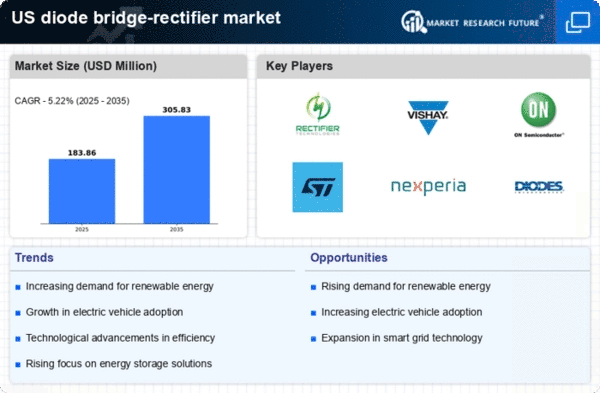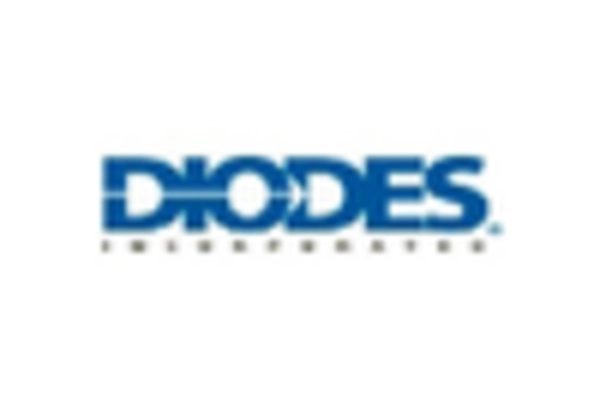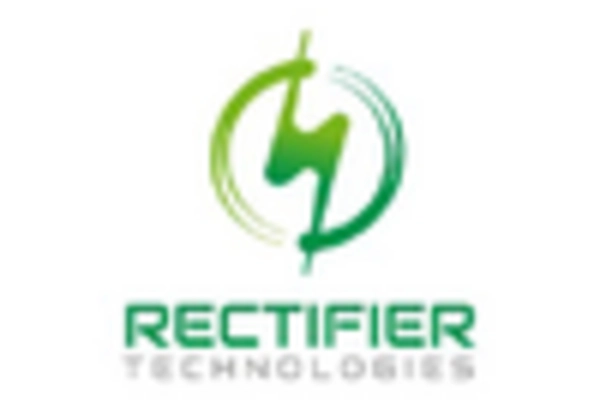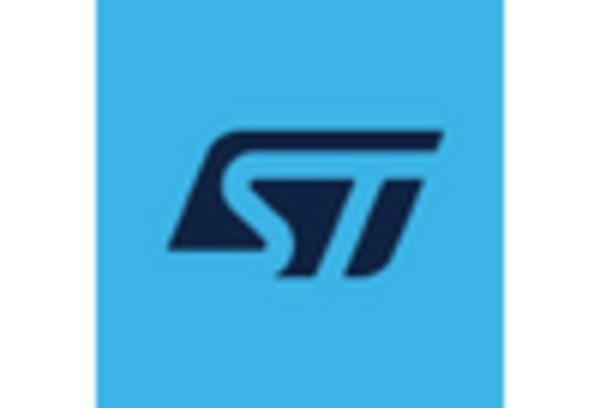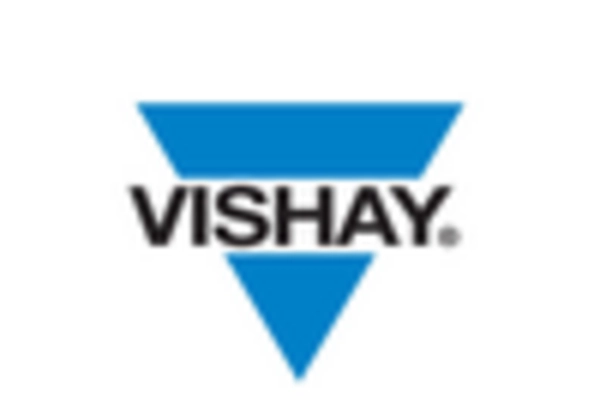Increased Focus on Energy Efficiency
The heightened focus on energy efficiency across various sectors in the US is significantly influencing the diode bridge-rectifier market. As industries strive to reduce energy consumption and operational costs, the demand for high-efficiency rectifiers is likely to rise. Energy-efficient diode bridge rectifiers can minimize power losses during conversion, which is crucial for applications in industrial automation and consumer electronics. The market for energy-efficient components is projected to grow by approximately 20% over the next few years, suggesting that the diode bridge-rectifier market will benefit from this trend as manufacturers innovate to meet stricter energy standards.
Rising Adoption of Electric Vehicles
The increasing adoption of electric vehicles (EVs) in the US is driving demand for efficient power conversion systems, including the diode bridge-rectifier market. As EV manufacturers seek to enhance battery performance and charging efficiency, diode bridge rectifiers play a crucial role in converting AC to DC power. The market for EVs is projected to grow at a CAGR of approximately 25% over the next five years, which could significantly impact the diode bridge-rectifier market. This trend suggests that manufacturers will need to innovate and produce rectifiers that can handle higher power levels and improve energy efficiency, thereby expanding their market share in the diode bridge-rectifier market.
Growth in Consumer Electronics Sector
The growth in the consumer electronics sector is a significant driver for the diode bridge-rectifier market. With the increasing demand for electronic devices such as smartphones, laptops, and home appliances, the need for efficient power conversion solutions is becoming more pronounced. Diode bridge rectifiers are integral components in power supplies for these devices, ensuring reliable operation and energy efficiency. The consumer electronics market is projected to expand by over 10% in the next few years, which could lead to a corresponding increase in the demand for diode bridge rectifiers. This trend indicates that the diode bridge-rectifier market will likely experience growth as manufacturers respond to the rising needs of this sector.
Expansion of Renewable Energy Infrastructure
The expansion of renewable energy infrastructure in the US is a key driver for the diode bridge-rectifier market. As solar and wind energy installations increase, the need for efficient power conversion becomes paramount. Diode bridge rectifiers are essential in solar inverters and wind turbine systems, converting generated AC power into usable DC power. The renewable energy sector is expected to grow by over 30% in the coming years, which indicates a rising demand for diode bridge rectifiers. This growth in renewable energy projects necessitates advancements in rectifier technology, ensuring that the diode bridge-rectifier market can meet the evolving needs of energy producers.
Technological Innovations in Power Electronics
Technological innovations in power electronics are reshaping the diode bridge-rectifier market. Advancements in semiconductor materials, such as silicon carbide (SiC) and gallium nitride (GaN), are enabling the production of more efficient and compact rectifiers. These innovations allow for higher voltage and current ratings, which are essential for modern applications in telecommunications and data centers. The power electronics market is expected to witness a growth rate of around 15% annually, indicating a robust demand for diode bridge rectifiers that can leverage these new technologies. This trend suggests that the diode bridge-rectifier market must adapt to incorporate these advancements to remain competitive.

